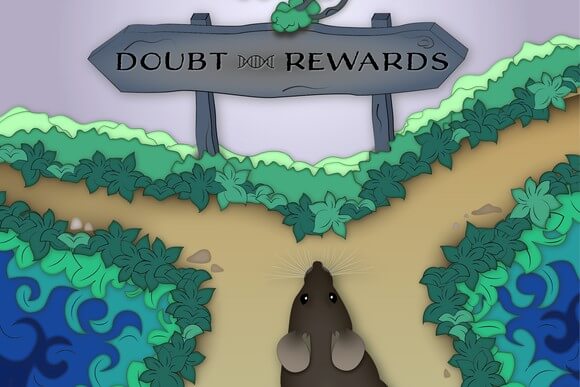New research from the University of Utah Health suggests that our decision-making might be more influenced by genetics than previously thought.
The study posits that this could even lead us to make choices that, upon reflection, might seem irrational. In a series of experiments with mice, it was observed that genetic makeup seemed to steer them towards certain behaviours, even when these behaviours appeared to be contrary to their best interests. The research team, headed by neurobiologist Christopher Gregg, PhD, embarked on this study after noting an unusual behaviour in mice.
Upon locating a hidden stash of seeds, the mice did not stay to consume them, instead returning to a previously fruitful site that was now devoid of food. The team observed that this behaviour resulted in the mice consuming less food overall, due to the time spent on these fruitless trips.
“It was as if the mice were second-guessing whether the first location really had no food,” Gregg says. “Like they thought they had missed something.”
Further investigation yielded a surprising discovery. Mice lacking a specific gene, Arc, did not exhibit this same “second-guessing” behaviour and were more likely to stay and consume the food they found. As a result, they consumed more calories overall. This was the first evidence the scientists found that genes could bias decision-making, even decisions that did not seem logical, at least to a human.
“We all have a clear sense of what it is like to second-guess something, but who would have thought that this type of behaviour could be so profoundly affected by one gene?” says Cornelia Stacher-Hörndli, PhD, a co-author of the study.
To better understand this behaviour, Gregg and his team utilised machine learning algorithms to analyse over 1,600 foraging excursions, identifying 24 recurring behavioural sequences. It was discovered that mice lacking the Arc gene demonstrated alterations in six of these sequences, changes which interrupted the “second-guessing” behaviour.
This raises the question, are other cognitive biases under genetic control? While previous research had shown Arc is involved in learning and memory, overall analysis showed that the mice’s memory—and their other behaviours—were largely intact. The implication is that the effect on those six behaviours was specific.
“One intriguing idea is that the animals evolved to make those decisions because they were somehow advantageous in the wild,” Gregg muses. He hypothesises that the behaviour of evaluating previous food locations might help the mice create a mental map, potentially aiding them in locating food more quickly in future.
“Genetically controlled cognitive bias may allow for effective decision-making during foraging,” he says. The research findings open up a fascinating new avenue for exploration. Is there a biological basis for other types of cognitive bias? And could genes guide decision-making in humans? More research will be required to answer these questions.
As Stacher-Hörndli states, “I believe that this research is foundational for a new field that we are calling ‘decision genetics.’

